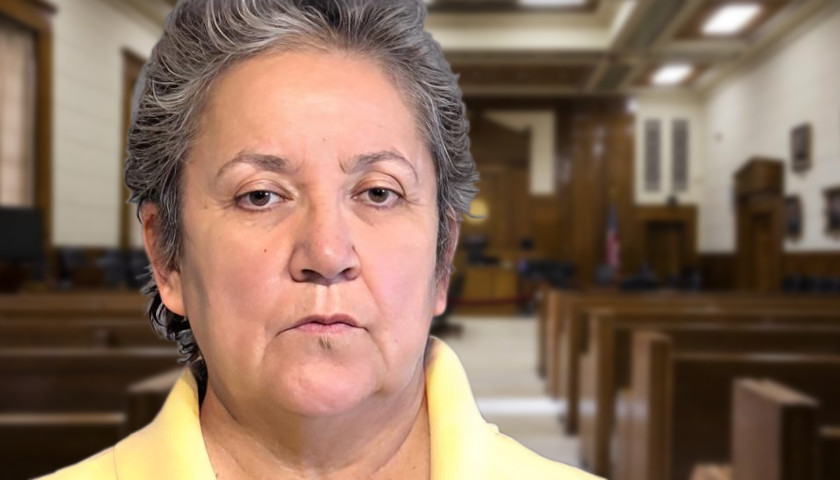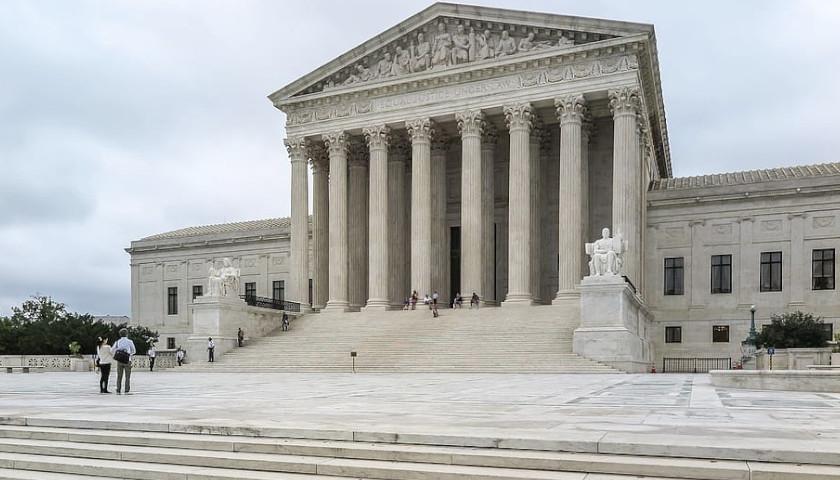The former Democratic mayor of San Luis, Arizona and a neighbor were sentenced Thursday for their involvement in ballot harvesting. Guillermina Fuentes was sentenced to two years of probation and 30 days in jail. Alma Yadira Juarez, who was caught handling the ballots with the former mayor, was sentenced to a year of probation.
Michele Swinick of the Save my Freedom Movement, who is leading an effort to stop the use of electronic voting machine readers in Arizona elections due to the potential for fraud, told The Arizona Sun Times, “From what I understand, if you cheat and commit fraud upon the sacred rights of the American voting system which makes our representative government system the most unique in all the world, you face a slap on the wrist. However, if you pray in front of a Planned Parenthood or if you exercise your First Amendment right of free speech or expose the truth about the fraudulent voting machines, you face years in prison, a billion dollar fine, and you’ll be under house arrest for the rest of your life, especially if you’re a Gold Star Mom like Tina Peters.”
Peters, the Mesa County Clerk and Recorder in Colorado, recently spoke at an event in Tempe put on by Swinick, where she explained how she was targeted by state and federal authorities after she became concerned there was voter fraud in the 2020 and 2021 elections and started taking action.
Prosecutors said Fuentes “appears to have been caught on video running a modern-day political machine seeking to influence the outcome of the municipal election in San Luis.” The documentary 2000 Mules from filmmaker Dinesh D’Souza and the election integrity group True the Vote spotlighted ballot harvesting in Yuma County, featuring testimony from an anonymous whistleblower there.
The two operatives were indicted for ballot abuse, a Class 6 felony, and pleaded guilty.
In Arizona, only a family member, household member, or caregiver of the voter may collect voted or unvoted early ballots from another person. According to prosecutors, Fuentes collected ballots from people at a table near a polling location where she was urging people to vote for a certain slate of candidates for city council. She then gave them to Juarez, who dropped them off at a ballot drop box. Fuentes admitted to investigators that she may have also filled out the ballots for voters.
Investigators said that Fuentes, who also served on the school board, used her position as a powerful figure in the heavily Mexican American community to get people to return their ballots to her or her friends.
Although the investigation only fully confirmed that four ballots were returned illegally, investigators believe the effort went much further. Investigator William Kluth wrote in a report that there was evidence Fuentes actively canvassed San Luis neighborhoods collecting ballots, even paying for them.
Juan Guerrero, a local justice of the peace, told investigators that “issues” like this had occurred in the town for years, and “influential people” like Fuentes, known as the “Chispas,” exchanged ballots for money.
Ballot harvesting was banned by the Arizona Legislature in 2016, and paying for ballots has always been illegal. Ballot abuse carries a possible sentence of up to two years in prison and a $150,000 fine. Prosecutors had asked for a year in prison. More serious charges of conspiracy and forgery were dropped against the pair when they agreed to plead guilty to ballot abuse.
Yuma County Superior Court Judge Roger Nelson expressed his displeasure with Fuentes’ attitude. “‘The defendant acknowledged responsibility for carrying ballots for someone else; however, she stated, ‘I’m not a criminal,'” he said. “Well, you are a criminal. You committed a criminal offense. I don’t think you recognize that as a criminal offense. That’s the problem that I have.”
Nelson discussed how people in the community knew the ballot harvesting scheme had been going on for years. “It’s been an issue for a long time, or at least it’s been alleged that it’s an issue, that people vote for others, take their ballots,” he said. “Everybody that’s involved in politics in this area knew that a new law was passed. You certainly knew it, that that law was new, even went up to the Supreme Court.”
Concerns about ballot harvesting this year have prompted groups like the Lions of Liberty in Yavapai County to set up watch groups at unmonitored drop box locations. The Arizona Legislature was unable to get legislation passed this past year clearly banning them due to a couple of Republican legislators siding with the Democrats to oppose the bills.
– – –
Rachel Alexander is a reporter at The Arizona Sun Times and The Star News Network. Follow Rachel on Twitter. Email tips to [email protected].
Photo “Guillermina Fuentes” by Arizona Attorney General.





